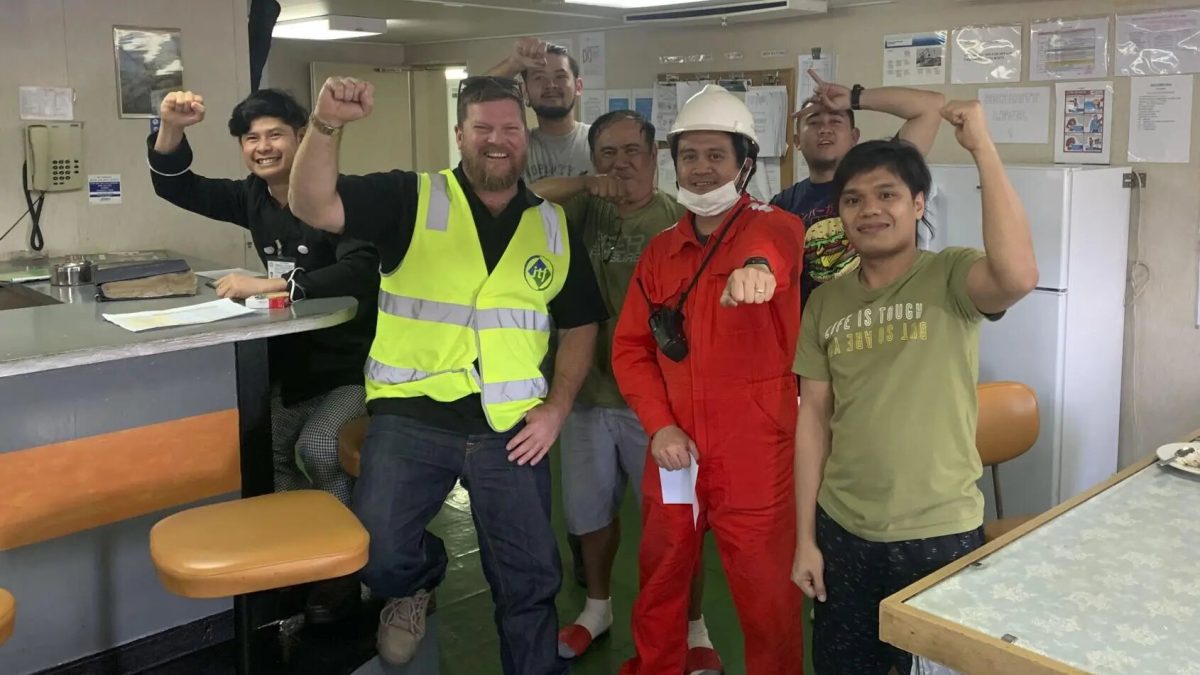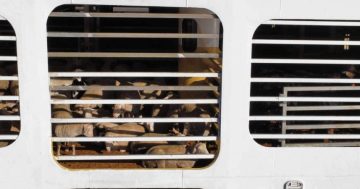
The ITF Australian Inspectorate is targeting wage theft in a ‘week of action’ at WA ports between 21 and 27 July. Photo: ITF.
The International Transport Workers’ Federation (ITF) has sent a coalition of inspectors to target and identify the exploitation of seafarers at Western Australian ports.
As part of its ‘Nowhere to Hide’ campaign, the ITF Australian Inspectorate is working alongside inspectors from the US, South Korea, UK and Sweden this week (21-27 July). With support from ITF trained volunteers, they will undertake welfare checks of international seafarers on foreign flagged ships.
When the campaign was launched in 2023, two ‘weeks of action’ held in NSW, Victoria, South Australia and Tasmania identified a total of $USD 10 million (over $AUD 15 million) in unpaid wages. This included a failure to pay $USD 8.4 million (nearly $AUD 13 million) of Australian Seagoing Industry Award payments on ships licensed to engage in coastal trading.
The group is expecting to find a similarly significant amount as they review ports along the busy shipping corridors of Australia’s western coast.
Last year, the ITF identified and recovered a total of $USD 20 million (over $AUD 30 million) from 650 inspections of seafarers working in Australian waters. The ITF’s Australian Inspectorate Coordinator Ian Bray said wage theft here was of significant concern to the global union.
“We are putting international shipowners on notice that we will be shining a light on the maritime industry and will be attempting to identify as much exploitation as we possibly can for the wage justice and rights of overseas seafarers,” said Mr Bray.
“We will also be focussing on payments under the Fair Work Act, the employment arrangements for international workers employed in the offshore oil and gas industry, as well as the visa and employment arrangements for ships’ crews operating in the expedition cruise industry.
“The emphasis will be on international seafarers working in these industries being employed on the same terms and conditions as any Australian doing the same job.”
According to the ‘Robbed at Sea‘ report, around 70 per cent of ships carrying imports and exports failed to meet minimum international standards for wage payment.
Published by the Australia Institute’s Centre for Future Work this year, it also claims the ITF Inspectorate recovered $AUD 38 million in stolen wages from spot checks that were done over a decade at Australian ports.
A key target for the ITF are flag of convenience (FOC) vessels.
FOC is a business practice where a ship’s owners register a merchant ship in a country other than that of their own. As a result the ship flies the civil ensign of the other country, which is called the flag state.
In the Robbed at Sea report, such vessels were found to have been mostly registered in low-wage, developing countries – where there are limited powers to resist exploitation by unethical shipowners, contractors and subcontractors.
Mr Bray said the seafarers on FOC ships came from some of the poorest countries in the world, and most Australians would agree they should receive fair and just wages.
“The ITF is concerned that the regularity in which employers are underpaying or avoiding payment altogether under existing Australian legislation – identifies an industry that either fails to understand its responsibility to adhere to the legislative instruments, or chooses to ignore the law altogether because the risk of being caught and prosecuted is dwarfed by the reward.”




